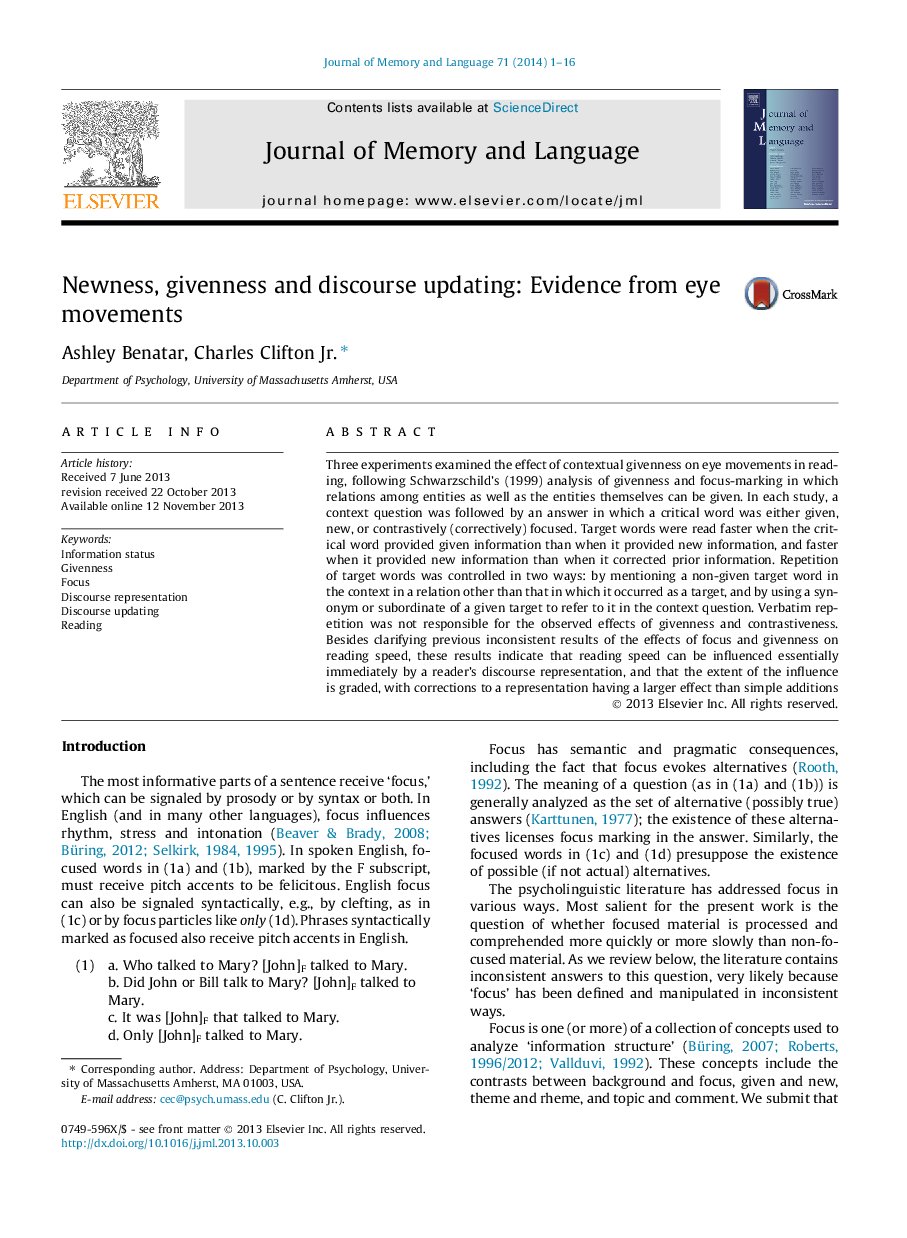| Article ID | Journal | Published Year | Pages | File Type |
|---|---|---|---|---|
| 10459722 | Journal of Memory and Language | 2014 | 16 Pages |
Abstract
Three experiments examined the effect of contextual givenness on eye movements in reading, following Schwarzschild's (1999) analysis of givenness and focus-marking in which relations among entities as well as the entities themselves can be given. In each study, a context question was followed by an answer in which a critical word was either given, new, or contrastively (correctively) focused. Target words were read faster when the critical word provided given information than when it provided new information, and faster when it provided new information than when it corrected prior information. Repetition of target words was controlled in two ways: by mentioning a non-given target word in the context in a relation other than that in which it occurred as a target, and by using a synonym or subordinate of a given target to refer to it in the context question. Verbatim repetition was not responsible for the observed effects of givenness and contrastiveness. Besides clarifying previous inconsistent results of the effects of focus and givenness on reading speed, these results indicate that reading speed can be influenced essentially immediately by a reader's discourse representation, and that the extent of the influence is graded, with corrections to a representation having a larger effect than simple additions
Related Topics
Life Sciences
Neuroscience
Cognitive Neuroscience
Authors
Ashley Benatar, Charles Jr.,
